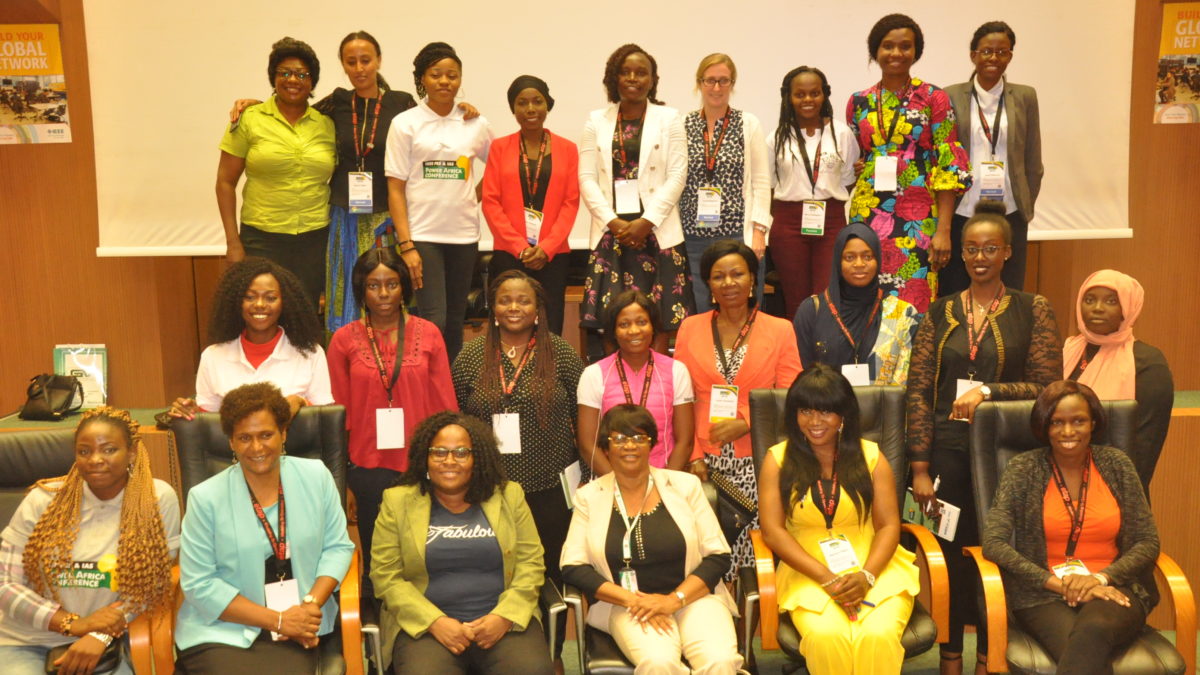IEEE PowerAfrica 2019 PES Women in Power Panel Session
The demand for energy supply is progressively on the rise in this age. We are at a time when many activities that we rely on are machines operated. Indeed the Industrial Revolution is here with us. More power is needed. This necessitates the participation of every gender in an all-inclusive model. We should strive to achieve the UN Sustainable Development Goal 7, which aims to ensure everyone has access to clean, modern and affordable energy. It is important for women to take part in all the energy value chains. Women are the sole managers of energy resources, particularly in the developing world.
Enhancing and Retaining Women in Power and Engineering. How do we take part?
Challenges faced.
Unfortunately, the role played by women to drive participation and growth is below the required level. It is at its threshold and comes with several limitations. This is a growing concern. Despite the efforts put in place to try and solve these challenges, we are not at the required level yet. It is critical for women to take part in key roles in the energy field. The Power Energy Society Women in Power Session at the recently concluded PowerAfrica Conference in Abuja, Nigeria held a panel session to discuss how to enhance and retain women in the power engineering field.

The panelists came together to share their experiences, knowledge, and suggestions in a bid to motivate the young girls to focus seriously on STEM education. The panel session was made up of representatives from Nigeria, Rwanda, and Kenya. It was amazing to have such a motivational audience. It drove an interactive discussion and most of the core topics were highlighted. This made it possible to equally gain a better understanding of the current state of affairs with respect to gender and energy in the educational structure in Africa.
What opportunities are there for women in energy?
Females in the rural areas are accountable for two thirds of the world’s food production as consumers and natural resource managers. As much as this is a risk, it is also an opportunity. Research is increasingly demonstrating the benefits of incorporating gender factors into the energy value chain and power industry as a whole. Moreover, as energy entrepreneurs, innovators and decision-makers, females are transforming the energy sector in their own capacities and positions.

Energy is a key factor in the alleviation of poverty. The growth of renewable energy solutions has been such as solar home systems, solar lanterns, clean cooking stoves, and biogas. These technologies have encouraged the sprout of women-owned small scale enterprises. With increased productivity and reduced healthcare expenditures, the women can focus on other activities which improve their general lifestyle. This also means the living standards of the families benefitting from this are raised and children can go to school.
Most pressing challenges
Women are usually disadvantaged at all levels with regard to poverty and access to land, natural resources, credit, data and decision making. Avenues such as community-based organizations and women empowerment self-help groups are providing them with a stronger negotiating power. This eases access to finance and energy-related services for women. It is time for a revolution and especially against the socio-cultural norms that are deeply rooted in our African cultures that exclude women from participating in the power and energy sector.

How does the future look like?
Going forward, in order to bridge the gender gap, it is essential to capitalize on women’s and girls ‘ understanding and empower them along the required routes to energy development, energy security, and conservation. It is also important to encourage and implement steps to expose girls to get to know electricity lessons step by step at a young age. This ensures mastery as they grow up. Lastly, let us advocate for the integration of gender perspectives in energy policy and development.


